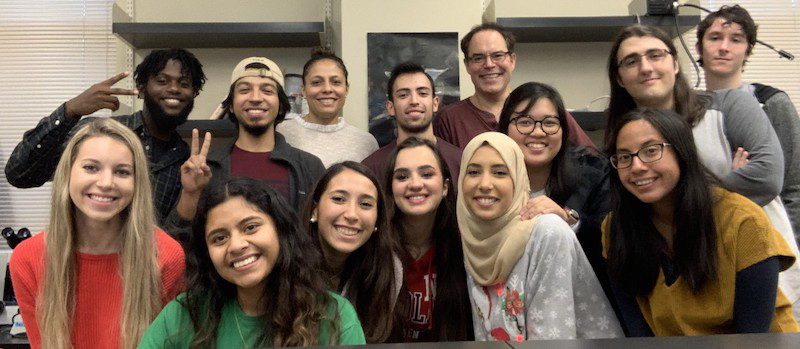Belonging


Dr. Danillo Augusto, PhD
Director Community Engagement and Success
danillo.augusto@charlotte.edu
The Cultivating Engagement, Leadership, Learning and Success (CELLS) Committee of the Department of Biological Sciences strives to create a welcoming environment and foster a sense of belonging for all members of the Department. The CELLS Committee will promote open communication across all groups within the Department, encourage greater transparency, ensure fair access to professional resources for individuals with varied backgrounds and skills, and support fair recruitment, retention, and advancement of faculty and staff.
WHO WE ARE
Membership in the CELLS committee is open to all faculty, staff, graduate, and undergraduate students in the Department of Biological Sciences. If you would like to join us, please feel free to reach out to any of our existing members to find out more or email. Current members include faculty, postdoctoral researchers, and graduate students:
Danillo Augusto
Sydney Birch
Tonya Bates
Sharon Bullock
Morgan Carter
Tuan Cao
Kausik Chakrabarti
Valery Grdzelishvili
Quinton Krueger
Brittany Johnson
Michelle Pass
Shankari Somayaji
Carrie Wells
Jian Zhang
CELLS OBJECTIVES
The objectives of the CELLS committee are to coordinate and support initiatives that
- Foster a learning environment where all undergraduate students are provided with the tools to thrive in class, including dedicated mentorship, access to professional development, internship, and research opportunities that will prepare them for successful careers in STEM.
- Promote a culture of scientific inquiry and effective mentorship practices where all graduate students can thrive and develop the leadership skills they need.
- Target the recruitment, retention, and success of all faculty in our Department.
FEEDBACK
If you have ideas for how we can improve our approach teaching and research, or if you have feedback or concerns about our initiatives, please email us.
You can also use this FORM to submit your anonymous feedback. We welcome your input.